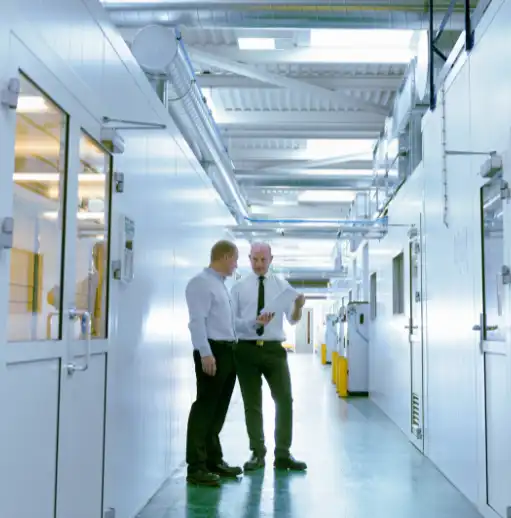In episode 370, host Mike Petrusky speaks with Hayley Blunden, PhD, Assistant Professor of Management at the Kogod School of Business at American University, where she focuses on researching how leaders can make challenging workplace interactions more productive. Mike asks Professor Blunden about the new world of work and the workplace and why she believes that human interactions are at the core of organizational success. They explore how managers should take the time to reflect on how their decisions impact workplace dynamics and personal interactions, and why delegation should be carefully managed to empower subordinates rather than burden them. Asynchronous voice communication is an innovative way to enhance perceptions of competence and likability in the workplace and asking for advice rather than feedback can lead to more specific and actionable developmental information.
Agenda
- The importance of thoughtful decision-making in the workplace
- The value of connecting asynchronously via voice and the impact of paralinguistic cues
- The distinction between feedback and advice in personal development
- The concept of delegation and how to empower subordinates.
What you need to know: Workplace takeaways
Takeaway 1: Effective workplace interactions and connections are crucial for innovation and maintaining a fair and empathetic work environment
Professor Blunden emphasizes the importance of considering the broader impact of decisions on workplace dynamics and interpersonal connections, stating, “I would encourage anyone managing a team or managing or thinking about how you’re managing a workplace to take the time to take a step back and really be thoughtful around how the decisions you’re making are potentially going to influence others.”
She highlights the need to focus on how these decisions affect “the connections that I’m able to make, the perceptions that people are going to have about work, the interactions that people may have with one another.” This approach, according to Blunden, is “more valuable than firing off that last email.”
Professor Blunden also discusses the concept of organizational justice, which involves treating colleagues fairly and with integrity. She cites a paper by Ead Sheriff titled “Too Busy to Be Fair,” noting that “Managers really want to do the right thing.
They want to make those connections, but it’s just there’s so much going on that it’s hard to make the time to make sure that we’re making those connections and thinking about how we’re going to roll something out so that we’re making sure we’re treating our colleagues in the most fair way possible or with the most integrity possible.”
This underscores the importance of making time for thoughtful and fair interactions, even in a fast-paced environment.
Takeaway 2: Asking for advice rather than feedback can lead to more specific and useful developmental information
Professor Blunden and her co-authors conducted research on the effectiveness of advice versus feedback, finding that “when people were asked for advice, they provided information that was more specific that then subsequently, others did rate as more useful.”
She explains that feedback is often vague and challenging to both give and receive, such as a comment like “your presentation needs more energy,” whereas advice can be more specific and actionable, like “on slide 5, if you added a quote or created a graphic that could get people more excited about it.” This shift in terminology from feedback to advice can significantly enhance the quality of developmental insights and improve workplace relationships.
She further elaborates, “We looked at this challenge and considered, well, what if we actually don’t elicit quote unquote feedback from people, but rather ask them for advice. Could that engender more specificity?”
The results of their studies, including one with over 50,000 employees, confirmed that asking for advice leads to more actionable and helpful information, which can be crucial for personal and professional growth.
Takeaway 3: Delegating decisions, rather than just tasks, can empower subordinates and improve workplace dynamics
Professor Blunden’s research on delegation revealed that managers should focus on delegating decisions rather than just tasks to empower their team members. She notes, “When we think about delegation, you know, traditionally we are thinking about giving people tasks, but what we’re really focusing on in my work is giving people decisions, so delegating the choice to do something, and that’s where I think a lot of that empowerment can lie.”
However, she cautions that managers must be careful to delegate decisions in a way that feels empowering rather than burdensome.
She provides an example of the potential pitfalls of delegation: “You can imagine if I’m delegating to you the decision about other people’s work schedules, right? That could feel very burdensome, because you might, you are opening that your delegee up to potentially blame from others if they don’t like the outcome.”
Instead, she suggests, “Delegating something that’s in that subordinate area of expertise, a choice that could be potentially very empowering.” This approach not only enhances the subordinate’s sense of ownership and responsibility but also fosters a more collaborative and supportive workplace environment.
Workplace management insights
- Thoughtful decision-making in the workplace can significantly influence connections and perceptions among colleagues
- Audio connections, such as voice messages, can enhance perceptions of competence and likability compared to text-based communication
- Asking for advice rather than feedback can lead to more specific and actionable information, which is beneficial for personal and professional development
- Delegation should be carefully managed to empower subordinates rather than burden them, especially by delegating decisions that align with their areas of expertise
- Managers should prioritize fairness and empathy in their interactions to build a more just and supportive work environment
Do a deep dive into more workplace insights by exploring all Workplace Innovator podcast episodes.





